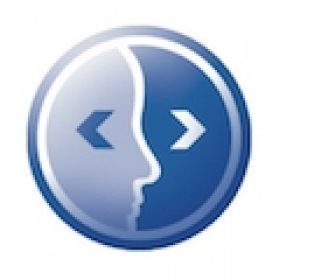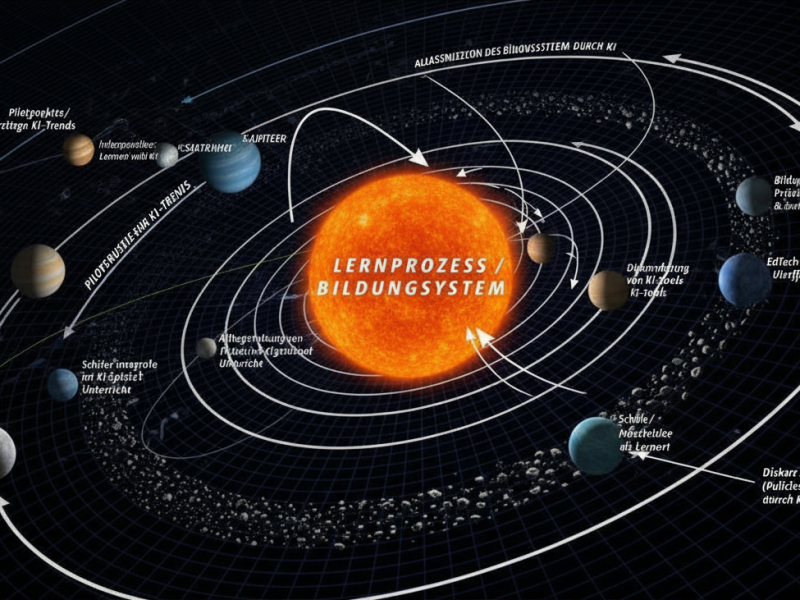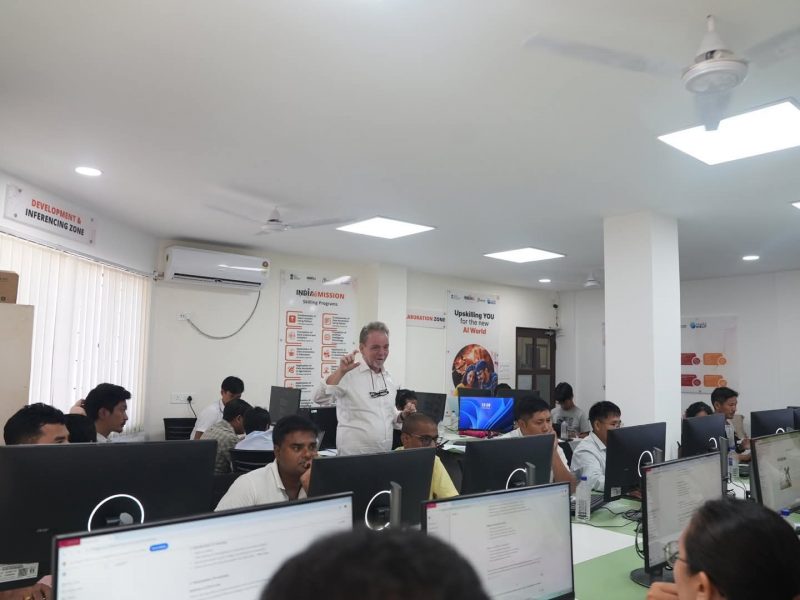What sounded like a joke at first…
At first I thought, “Oh dear…. Exam cheating as top news?” “Several” (sic!) students were reported? But: with AI!!! “A student caught cheating red-handed” – headlines for ZDF and Tagesschau? “Teachers noticed irregularities in exams” – a case for the school authorities?
Here are the relevant announcements (German websites, quotes and titles translated):
Suspected cases in Hamburg: Abitur exam: Students probably cheated with AI […] Teachers in Hamburg have noticed irregularities when correcting the Abitur exams. […] A schoolboy caught red-handed.
26.05.2023 – Abitur exams in Hamburg: Students probably cheated with AI – ZDFheute
Abitur cheat with AI in Hamburg: Now 20 schools report suspected cases […] Schools have reported individual suspected cases as part of the written Abitur exams […] The teachers had reported that they had noticed irregularities during the corrections of the exams
27.05.2023 – Abitur cheat with AI in Hamburg: 20 schools are now reporting suspected cases – Hamburger Abendblatt
Schools then used software that checks the probability of the text being created by an AI. The result: there was probably cheating.
27.05.2023 – Abitur in Hamburg: Artificial intelligence used to cheat | tagesschau.de
… is developing into a debate….
The fact that this information has made it into the leading German media seemed to me at first… yes, what? “AI Gaga”? And now, at the same time (that’s why?) a small debate has developed.
“I believe that the rapid development of AI does not allow us to slowly evolve performance evaluation. We have to realize that our performance system is old school,” said BLLV President Simone Fleischmann […] We have to “rethink school”.
27.052023 – Because of ChatGPT and Co: BLLV President calls for new performance system – without grades | News4teachers
VDR Federal Chairman Jürgen Böhm: “Just because digital devices were not checked during examinations in Hamburg, should grades be abolished?”
29.05.2023 – Is ChatGPT forcing a new performance assessment in schools? Debate boils up | News4teachers
In the debate about the reform of the classical grading system, the Bavarian Philologists’ Association warns against too quick conclusions such as the abolition of grades demanded by the BLLV. […] A performance evaluation only with a view to the processes and not also to the results of learning and competence acquisition misses the reality, in which the ‘end product’ is also important.
31.05.2023 – Debate on AI: Philologists’ Association rejects call for abolition of grades | News4teachers
… which shows a problem that goes deeper.
As it turns out, the problem goes deeper than expected. While the debate revolves around “abolishing grades” and “rethinking school”, it shows how ChatGPT is in the process of decomposing a DNA of the traditional examination system. Formulated from the perspective of the existing, the following chain of effects can be reconstructed:
1) Technology decontextualized
- GPT systems are trained on existing texts and learn the patterns of these texts and text types. When generating new texts based on the learned patterns, the original context is lost. The text AI can no longer establish a connection with the training data.
2) Authorship blurred
- Linked to the technology is the legal question of authorship or in German “Urheberschaft”. There are two sides to this: the question of the exploitation rights of the training data and the side of the authorship of the texts generated by users.
2.1) Right of exploitation of training data
- On the system side, the question of whether decontextualization also makes the author’s rights tied to the “work” obsolete, which is currently being discussed strongly, especially in the art and music scene. Shouldn’t the suppliers of the training data be valued accordingly? What if the newly generated artifact freshly synthesizes the style and tone of the creators and confusingly resembles them?
2.2) Authorship of the resulting texts
- On the user side, the question arises as to whether the person who generates the text with the help of an AI has an author status for it. This is the background to the difficulties that the journal Nature, for example, has with regard to how AI-generated texts should be labeled. As a quote does not work, because it is not reproducible. As a work provided independently by the author in the “old” sense, not either.
3) Testing: Individual performance under controlled conditions
- The unclear situation of authorship meets our education system, in which the awarding of certificates is linked to examinations. The examination logic in the narrower sense is that individual, measurable performance must be provided under controlled conditions.
4) “Täuschungsversuche” (attempts at cheating)
- Cheating and copying (officially: “attempts at cheating”) in the exam constitute a violation of the specified exam conditions. These are essentially the famous “permitted aids” (mobile phone in the exam) and the “independent performance” (copying, assistance) that are part of every exam setting.
5) Proof of deception
- The problem that arises from this is not that examination performance and learning performance are not congruent. This is the didactic problem of the examination culture. Nor does it consist in the fact that the “attempted deception” cannot be sanctioned (the mobile phone in the examination remains prohibited), but that it is no longer possible to clearly prove the successful deception in the legal sense for the reasons mentioned under 2.2. This is because there is no textual equality – as in the case of plagiarism – and a probability is not sufficient.
The fun fact is that teachers, for their part, use AI tools to provide proof of deception. However, in contrast to plagiarism or copying, it can only be determined that the text was created with a certain degree of probability with the help of AI, but this does not meet the legal requirements of evidence. After all, the examinees could have memorized the content word for word, which is not only not forbidden, but is also in line with the prevailing examination culture.
In a sense, the contradiction between digital mediatization and the construct of authorship becomes effective here and now. In the digital ocean, in which content is constantly (technically) copied, distributed, remixed and decontextualized, the “author at the end of the Gutenberg galaxy” (STALDER) is in a losing position. The knee-jerk demand for “clear and legally secure rules”((„Christian Gefert, Chairman of the Vereinigung der Leitungen Hamburger Gymnasien und Studienseminare (VLHGS) […], which demands clear and legally secure rules from the authority for dealing with AI in schools.“)) sounds logical, but it makes no sense. The existing system of rules (examination, aids, attempted deception) is still coherent. But the linchpin of legally defined individual authorship is no longer appropriate to the new reality.




Dear Jörg,
thank you for the up-to-date, profound and inspiring analysis. I am sure that this can still be profitably expanded. I am not so sure whether we will get an adequate further development of existing practices with our very rigid institutionalization of education – without leaving this institutional framework. But that would be in line with your argument 🤔